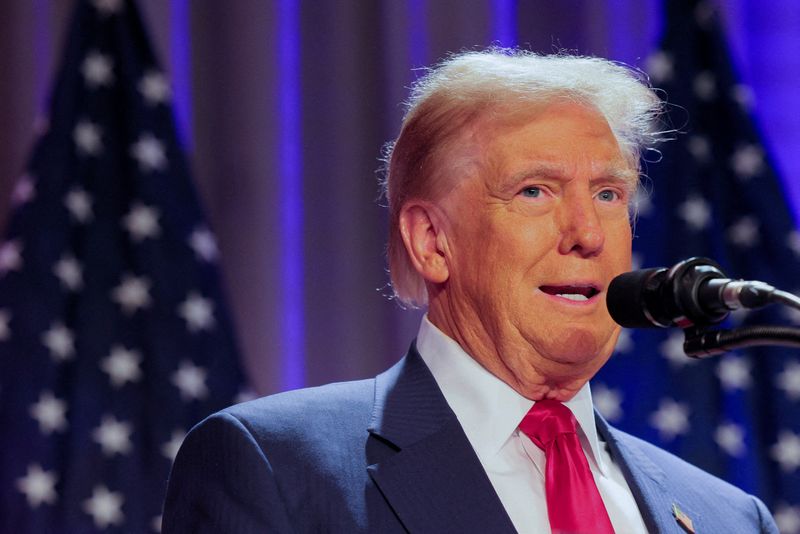Investing.com — Donald Trump’s inauguration as the 47th President of the United States prompted varied reactions from Wall Street analysts, focusing on trade, tariffs, and policy direction.
Here’s what they said:
Morgan Stanley (NYSE:MS) noted that Trump’s address emphasized trade and immigration without major shifts in fiscal policy. “Broad and immediate tariffs were not announced,” the firm highlighted, suggesting that significant economic impacts from policy changes may emerge later in 2025. The possibility of tariffs on Mexico and Canada by February 1 remains, warranting vigilance.
Goldman Sachs found Trump’s inauguration policy announcements on tariffs “more benign than expected.” The bank added that the comments on China were notably less hawkish, and the risk of a “universal tariff” appears lower than anticipated. Goldman maintains a cautious outlook on tariffs with a 55% probability for EU auto tariffs and reduced odds of a universal tariff to 25%.
Wolfe Research pointed out that Trump’s inaugural address avoided concrete tariff actions but directed agencies to reevaluate trade policies. The firm said “Trump’s trade memo” reinforces that planning and implementation will take longer than consensus expectations, Wolfe noted, predicting that any new tariffs will follow significant negotiations.
Raymond (NSE:RYMD) James emphasized the broad scope of executive orders signed on Day One, covering trade, energy, and immigration. The firm expects market focus on the aggressive trade approach, including potential new tariffs by February 1, and broader deregulatory initiatives. They caution that while immediate tariff actions were not taken, the threat remains significant.
UBS highlighted the economic implications of Trump’s agenda, focusing on tariffs, energy production, and inflation. UBS noted, “Trump’s later comments on Canada and Mexico tariffs served to remind markets of the two-way volatility,” suggesting ongoing uncertainty and potential significant macroeconomic impacts.

